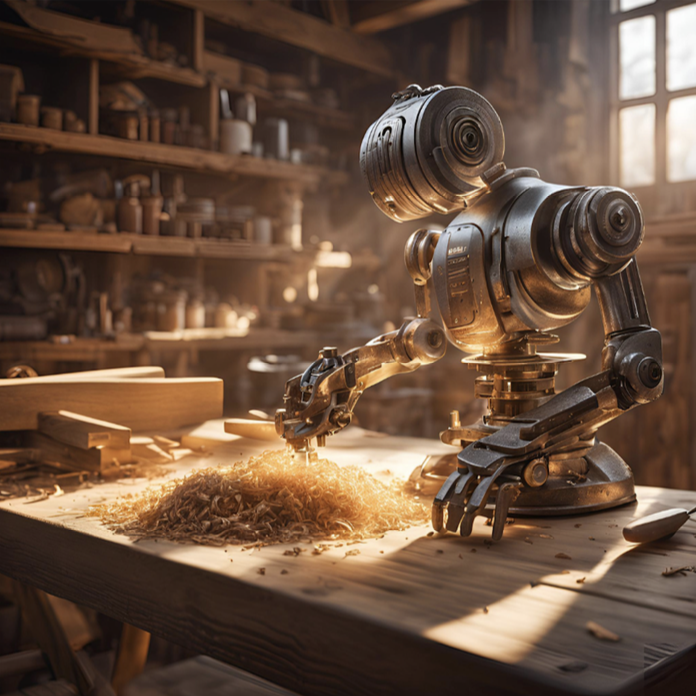Considering carpentry might help your career choices…

As AI reshapes our career landscapes, I wanted to share the idea that our professional crafts create a human-to-human connection, and this is where opportunities lie. As AI will affect all of us… I’d appreciate your thoughts too.
You’d be right to assume this carpenter is no expert on AI or economics. BUT woodworking has been with us since the Pharaohs and my craft has adapted to multiple social and technological changes over the last 5000 years. So, what has that shown us? Amidst all the changes, the craft has endured. Indeed, the better you are at the craft, the more valuable your work is – still. It strikes me that this is applicable to most types of skilled work.
The connection in every maker-client relationship:
The difference between a forgettable, commoditised output (Hello flat-pack : ) and something that is received with delight, something that endures – is the care and craft behind it. Whether you’re creating digital experiences or building custom motorcycles, the best work isn’t just an output – it’s shaped by understanding, intention, and care.
Beyond a product, you get the maker’s imprint:
Industrialised production delivers the item, but craft adds meaning; a bespoke suit and an antique Arts-and-Crafts bookshelf both carry the maker’s mark — a result of skill, attention to detail, and a resolved overview. If you have an eye for detail, you’ll recognise the imprint. This opportunity remains true – even if you think you’re just producing graphics for a report.
Craft creates a relationship:
I also believe the best work isn’t just delivered; it’s co-created. Makers listen, adapt, and refine their work based on conversation and trust. A good cabinet-maker considers the space and use as context, just as a great wine-maker can create experience that goes beyond the glass. Intention and craftsmanship will always remain in the human realm.
The value of craft in an AI-world:
The highest-value work is typically human-centered, offering:
- Accurate, personalised solutions over efficiency.
- Emotional resonance beyond generic outputs.
- Thoughtful touches that machine production cannot create.
Human touch is the difference:
If I am to sum-up my ramblings, it’s that machines make creation more efficient, but only makers can craft meaning. In a world of automation, those who create with care and intention will always stand out.
PS I fully appreciate the irony of using an AI-generated image to start a discussion on craft.
